Best For Film’s Favourite Flicks #7 – Goodfellas
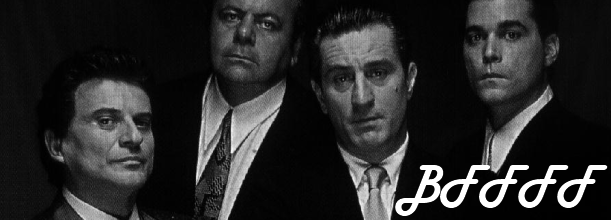
Martin Scorsese‘s career has spanned over 50 years and shows no sign of stopping. I hardly need drop the names of some of his films to illustrate how remarkable he is as a director (although I will. Raging Bull? Taxi Driver? He even directed the music video for Michael Jackson‘s Bad!). Even amongst all of his works, Goodfellas stands out as possibly his finest hour. Name any gangster film or TV show since, and you can be guaranteed that they owe everything to Goodfellas.
Ray Liotta plays Henry Hill, a New York mobster who was active from 1955 till 1980, when he turned informant for the FBI against the Lucchese crime family. His remarkable life was captured in the autobiography Wiseguy: Life in a Mafia Family, and it is this book that Goodfellas is based on. He died earlier this year on 12th June 2012 of a heart attack, which is as peaceful a way to go that any gangster-turned-informant can hope for.
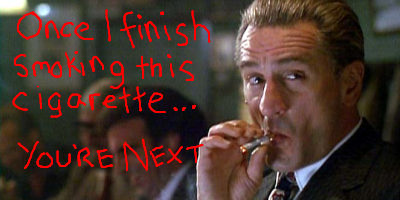
The greatest challenge for making a film where the protagonist ends up an absolute tool is creating the sense of identity between the character and the viewer. We have to feel as if we understand and identify with Henry Hill despite his crimes. Scorsese achieves this in spades. The narration, so often feared in movies (and rightly so, considering how often they turn out crap) is never used for exposition. We are shown everything. Ray Liotta’s world-weary and nostalgic tones serve to help us to feel like we’re in his head, understanding his thought process. The start of the film (after the violent and exciting opening) revolves around Henry Hill’s abusive father and crappy home life. The mob is shown as caring and generous; a means of escape. They applaud and support him. Who wouldn’t want that life?
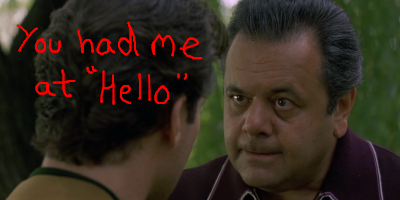
There are two scenes that stand out in the first half of the film, both long tracking shots, both of which are now taught to every film student in the world. The first is the introduction to all the mobsters, a scene which has become almost a cliche because of the number of times it has been replicated. We travel around a romantically lit restaurant from Ray Liotta’s point of view as he narrates the names and a couple of details about the wiseguys. Nothing too much, just a quick glance at each of them, not enough to become contrived or boring. It sucks you into this world, makes you feel accepted, like you yourself are one of the family. It’s not a perfect take – a couple of the actors look a little too knowingly into the screen and some of the line deliveries aren’t great, but Scorsese liked the warmth and familiarity, so he used it. As ever, he was completely right.
There is nothing, nothing wrong with the second long shot. Following Ray Liotta on his first proper date with his future wife Karen, the long tracking shot is 3 minutes and 13 seconds of perfection. The flow of the scene is like a beautiful orchestral piece. Every line is timed against a rhythm. The sheer number of people moving around the kitchen as they pass on through is staggering, and one can only imagine how perfectly choreographed each and every actor had to be. The entire scene is romantic and smooth and again makes the world of Henry Hill so very alluring to us muggles.
Consider how many times they had to reset this scene to get it just right; the people outside in the line, the bouncers along the corridors, the chefs in the kitchen, the waiters setting up the table, the restaurant patrons, the crappy comedian Henry Youngman who kept messing up his one line during filming, every single one had to be exact for this scene to come out like it did. Scorsese is nothing short of a madman and a genius.
Possibly the most iconic scene in Goodfellas is in the restaurant, where Joe Pesci has his finest hour regaling Ray Liotta and a group of gangsters (and most of the restaurant it seems) with a hilarious story. Liotta compliments Pesci, “You’re a real funny guy,” and Pesci ever so quietly snaps. No one can look like he’s holding back murder like Pesci. His repeated accusations of “Funny how?” is so irrational and unexpected that it seems to paralyze Ray Liotta. After the most uncomfortable silence in history, Liotta miraculously breaks the tension by calling Pesci out on his bullshit. Amazingly, the scene was ad-libbed.
Previous to this scene, we had begun to identify with Henry Hill. We understood his longing to belong to a family, to be someone important. Unconsciously or not, the viewer has imagined themselves in Henry Hill’s shoes. In a quick flash, in this moment of potential danger, you are completely removed from Henry Hill. His ability to smooth the situation over seems arcane to the average person. We are not given his thought process like most other scenes. This is where you are split, irrevocably, from Ray Liotta.
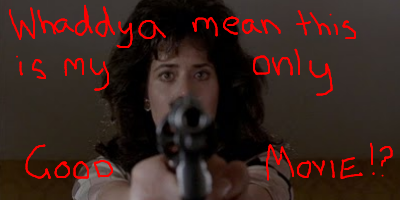
Let’s say you’re directing a film of your own. It’s coming out brilliant. Everyone working on the film knows it and the producers and investers are happy. It would be madness, then, to take all the established rules for film making and toss them out the window over and over again. One example: Ray Liotta’s narration switches halfway through the film to follow Henry Hill’s wife Karen for a while. But it works. The camera starts zooming in on anything and everything, like a pot of pasta sauce, for no apparent reason. But it works. Ray Liotta actually breaks the 4th wall in the last minute of the film. Liotta actually talks at the camera like Ferris Bueller, taking you out of the film completely, right at the end. But it works.
There are too many amazing moments in this film to fit into one blog post. Ray Liotta Hulking out on the guy who attacks his wife, Karen’s slow descent into sleaze, Paul “Paulie” Sorvino not talking much, but speaking volumes, Robert De Niro just smoking the fuck out of that cigarette while Sunshine of your Love plays. I didn’t even get a chance to mention Samuel L. Jackson!
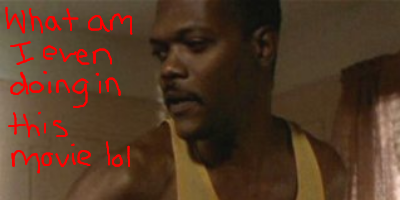
Scorsese shows us in this film what it takes to be a true director: show the world that you’re a master of the craft and, with enough guts, you can break every single rule in the book. There is nothing accidental about this film. Every beat, every camera angle, every phrase uttered is balanced to fit Scorcese’s vision. Masterpiece is too limited a word for this film.





Recent Comments